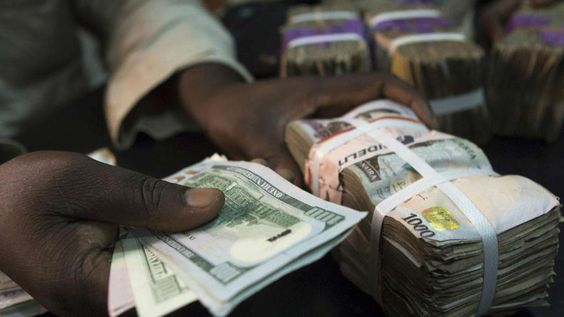Business
Nigeria experiences a significant increase of 134% in its domestic debt

By the end of 2023, the total amount of domestic debt might have risen by 133.95 percent to N51.96 trillion.
The Director-General of the Debt Management Office, Patience Oniha, presented fresh facts on which this is based.
The Federal Government raised a total of N7.04 trillion in new domestic borrowing in 2023, she disclosed to CNBC Africa on the fringes of talks in Abuja for the creation of the African Debt Managers Initiative Network, which is led by the African Development Institute of the African Development Bank.
Read Also: 2024 budget: NASS demands committees to submit reports within 48 hours
“I am happy to say that the new domestic borrowing in 2023 was N7.04tn, and that has been raised in full as of right now,” Oniha stated. It has been raised, so I won’t have to explain how we did it. In contrast to the N3.5 trillion from the previous year. It indicates that there is debt in the market for us to raise capital.
Nigeria’s total domestic debt as of the end of December 2022 was N22.21 trillion. By the end of June, this had considerably increased to N48.32tn.
In defence of the hike, DMO said that the inclusion of the N22.71tn securitized FGN’s Ways and Means Advances, which was reflected in domestic borrowings, was the main addition to the public debt stock.
The overall domestic borrowings outside of the securitized Ways and Means Advances would have been N25.60tn, indicating that the total fresh domestic borrowing at that period was N3.39tn, based on The PUNCH’s calculations. The PUNCH added the entire domestic debt as of December 20, 2022 (N22.21tn) with additional borrowing for the year (N7.04tn) and securitized Ways and Means Advances (N22.71tn) to the government’s total domestic borrowing for 2023, which came to N51.96tn.
Regarding the composition of debt, Oniha pointed out that a number of the investors in the securities were growing institutions such as banks, insurance companies, pension funds, fund managers, and asset managers.
“We still had an auction this week,” she said. It only indicates that there is liquidity because subscription levels have been strong and rates have been relatively prudent relative to the monetary policy rate. She stated that the government anticipates carrying on with its domestic market venture in 2024.
The DMO DG indicated that high rates have been caused by high rates of inflation when questioned about the overseas market.
“There is still uncertainty around the world from the Russia-Ukraine war,” she emphasised. Thus, overseas investors are a little more circumspect. To put it another way, they are risk-averse and are investing in triple-A or double-A rated assets that provide them high rates of four or five percent.
On the other hand, she contended that one may conjecture that market stability was returning based on the data at hand.
In addition, Oniha discussed revenue, criticising the nation’s heavy reliance on oil for its income generation and the difficulties it has had in meeting its needs.
The speaker proceeded, “A presidential committee on fiscal reforms and taxes is a new development, so we expect the narrative to change to higher revenues. Several governments had tried to change that narrative, improve revenue.” The trajectory in that regard is evident if you look at the MTEF for 2024 to 2027.
You will obviously require less financing if your revenues rise. You can offer more services with the money you make. Additionally, your ratio of debt service to revenue will
Nigeria’s overall public debt increased to N87.38 trillion as of the second quarter of 2023, according to DMO.
As of June 30, 2023, Nigeria had a total public debt stock of N87.38 trillion ($113.42 billion). It includes the total debt of the 36 states, the Federal Capital Territory, and the Federal Government of Nigeria, both internal and external.
The incorporation of the N22.712tn securitized FGN’s Ways and Means Advances was the primary contribution to the Public Debt Stock.
Wale Edun, the Coordinating Minister for the Economy and Minister of Finance, has stated that Nigeria cannot rely on borrowing to fund its national budget for 2023. He pointed out that in order to lower its current large deficit finance, the nation must make the required sacrifices in order to raise enough money.
He declared, “It is obvious that we are not in a position to rely on borrowing in the current situation, either nationally or internationally.
We currently follow a certain borrowing profile. Reducing the amount of borrowing or intercepting deficit funding in the 2024 budget is our approach to the tariff. In short, wealthy nations are focused on lowering the global inflation rate in order to stabilise their economies and allow for increased investment.
“They’re giving up on the immediate objective of pushing up interest rates and, of course, high interest rates don’t go together with investments and compacting their economies, or at least reducing the money supply.”
